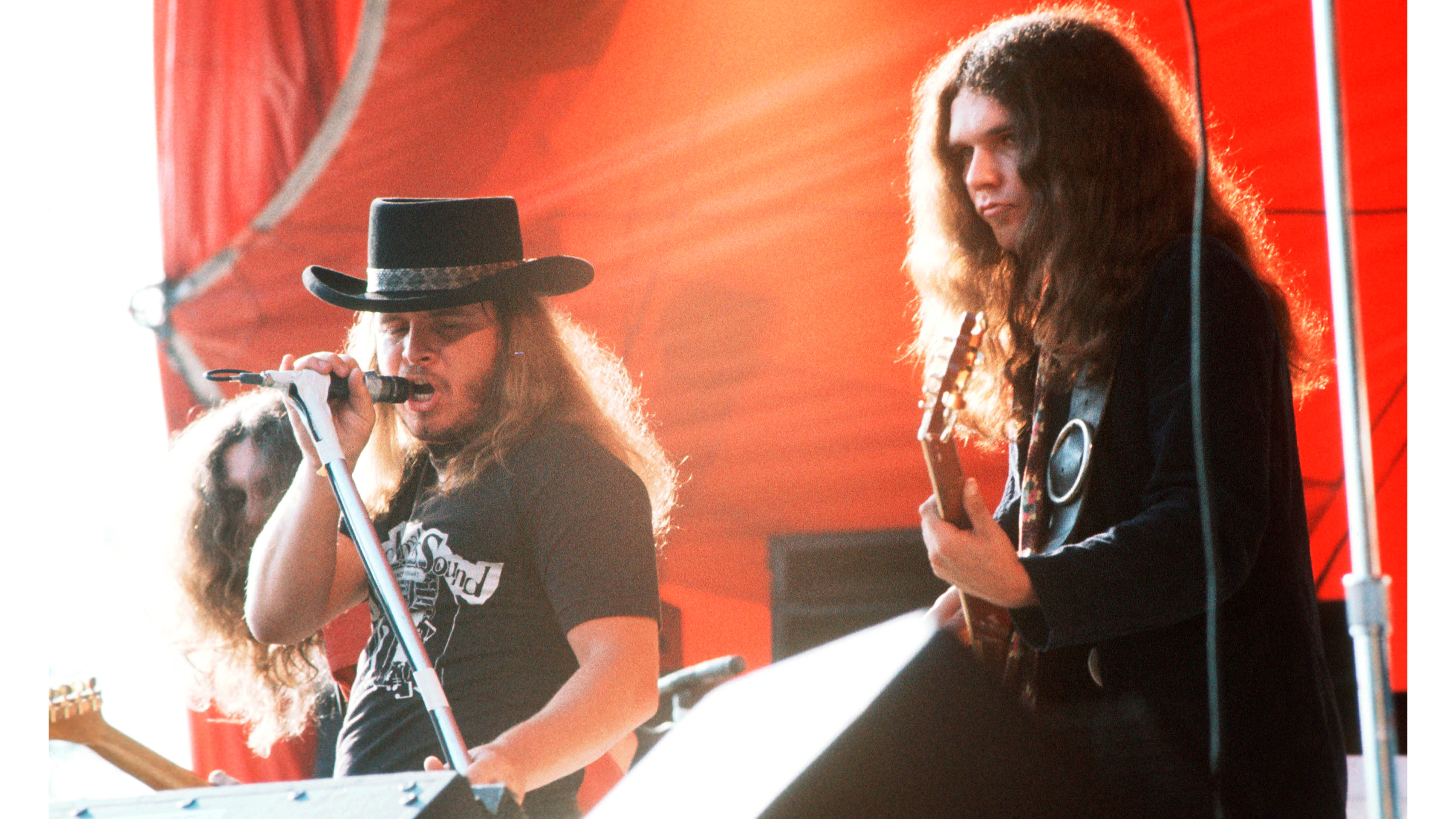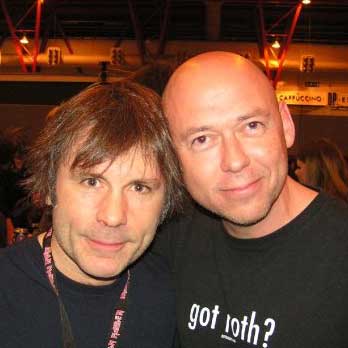“When we went to record it, the record company said, ‘Man, they won’t play that, it’s too long.’ But we said, ‘We don’t care!’”: How the young Lynyrd Skynyrd turned a simple love song into a southern rock epic
"Ronnie said, 'Just go till I tell you to quit!'"

BEST OF 2025: Join us for our traditional look back at the news and features that topped MusicRadar's charts in 2025.
It’s the band’s signature song. The Stairway To Heaven of Southern rock. An epic track with a blistering guitar-solo coda that’s right up there with Hotel California. Lynyrd Skynyrd’s Free Bird is undoubtedly one of the most iconic rock songs of all time.
But as guitarist and founding member Gary Rossington said, this legendary song started out as something altogether more humble.
In a 2012 interview with Classic Rock, Rossington talked about how Free Bird was created – written by fellow guitarist Allen Collins and singer Ronnie Van Zant, but shaped by the whole band, with a starring role for pianist Billy Powell.
Rossington explained how they first began writing songs in their hometown of Jacksonville, Florida – with Van Zant as the dominant figure in the band.
“Like every kid in America, we wanted to be The Beatles,” Rossington said. “We wanted to be in a band, we started talking to each other, and learned all together – me and Ronnie and Allen.
“I knew a couple of chords but Ronnie couldn’t sing at all and we didn’t think we could ever write a song ever in our lives. We thought that took talent!
Want all the hottest music and gear news, reviews, deals, features and more, direct to your inbox? Sign up here.
“We just had a dream of making it in a band, but we didn’t think we’d make it real big.
“But we started rehearsing and playing around town at parties and stuff, and when we got into writing we started trying real hard.
“Me and Al would battle for solos. We’d learn a song and whoever played lead the best got it.
“So after a while we’d be fighting each other for it, and Ronnie saw that. He used to tell the other guys, ‘Watch this – Gary, why don’t you play the lead there?’ And Al would be so pissed, he’d come back the next day and play it better than me.
“Ronnie was slick. And then it turned into real fights! But it was great.
“For a while I had a girlfriend and every day I would go to her house after the band practiced for a couple of hours, and Allen didn’t have a girlfriend – he’d go home and play. And that meant that Al was learning quicker than me. So I ended up breaking up with this girl so I could play more!”
Rossington cited a handful of blues players as key influences for himself and Allen Collins in their formative years.
“We loved blues,” he said. “Paul Butterfield and John Mayall, Muddy Waters and Son House and Howlin’ Wolf. Everybody was blues-influenced, cos rock ’n’ roll evolved from blues. Blues is where it’s at.”
When Collins and Van Zant first wrote Free Bird, Rossington never sensed that it was something special.
He recalled: “It was a simple love song about leaving a girl and being a free bird – like, you gotta wander. Ronnie wrote the lyrics, so we had a song but it just ended. So we were playing it, we liked it and we taught it to the rest of the band.
“But it was just a guitar song. We didn’t have Billy Powell playing piano on it yet. At that time Billy was our roadie, he set up the equipment and hung out with us. And he played classical – he didn’t even like rock ‘n’ roll.
“I kind of came up with the three chords at the end so Allen could play lead, and when we were playing clubs – to stall for time, I swear to God – Allen would play 30 seconds of lead and I would play the chords a few passes, and that was it.
“We weren’t recording yet, but we’d play it in a club and Ronnie would say, ‘Play it a little longer, so I can rest my voice.’ We were playing four or five hours a night, four or five sets. So it turned into two minutes, then three minutes, then four. And then on time Ronnie said, ‘Just go till I tell you to quit!’ So it just kind of evolved.
“When we went to record it, the record company and a lot of people who advised us said, ‘Man, they won’t play that, it’s too long.’ Cos songs could only be like two or three minutes, like the old Beatles and Stones songs. But we said, ‘We don’t care!
“Truth is, we didn’t think it would be a big song.”
Free Bird was the final track on the band’s debut album, (Pronounced 'Lĕh-'nérd ‘Skin-‘nérd).
The album was recorded in early 1973 at Studio One in Doraville, Georgia, and produced by Al Kooper, an experienced session musician who had previously played on landmark songs including The Rolling Stones’ You Can’t Always Get What You Want and Bob Dylan’s Like A Rolling Stone.
Free Bird was issued as a single in November 1973 but only reached No.87 on the Billboard Hot 100.
As Rossington told Classic Rock: “After the first album, we just went back to playing clubs and making no money. Every penny we made went into equipment or gas or something for the band.
“Then we did the second album [Second Helping] and we weren’t doing that much.
“The first time we played in Jacksonville to three or four thousand people we thought we’d made it! We just wanted to play and be on the road. We thought that was the greatest thing in the world.”
Skynyrd’s luck changed in 1973 when they toured as opening act for The Who.
“We watched The Who every night, every second of it,” Rossington said. “It was great for us. We were like kids in a candy store. That’s all we wanted to do – get down to the coliseum and hang there all day.
“It was during that tour with The Who, when we got exposed to bigger audiences, that our records started selling good and radio stations started playing Free Bird.”
The song would become an anthem and a staple of classic rock radio.
Famously, on 21 August 1976, when Skynyrd played at Knebworth on a bill headlined by The Rolling Stones, their set climaxed with a triumphant performance of Free Bird.
It was only 14 months later, on 20 October 1977, that Skynyrd’s private plane crashed in Mississippi, killing six people, including Ronnie Van Zant, and leaving others with terrible injuries.
When Van Zant had been asked to explain the meaning in Free Bird, his answer was simple. “What it means to be free,” he said, “in that a bird can fly wherever he wants to go.”

Paul Elliott has worked for leading music titles since 1985, including Sounds, Kerrang!, MOJO and Q. He is the author of several books including the first biography of Guns N’ Roses and the autobiography of bodyguard-to-the-stars Danny Francis. He has written liner notes for classic album reissues by artists such as Def Leppard, Thin Lizzy and Kiss. He lives in Bath - of which David Coverdale recently said: “How very Roman of you!”
You must confirm your public display name before commenting
Please logout and then login again, you will then be prompted to enter your display name.
